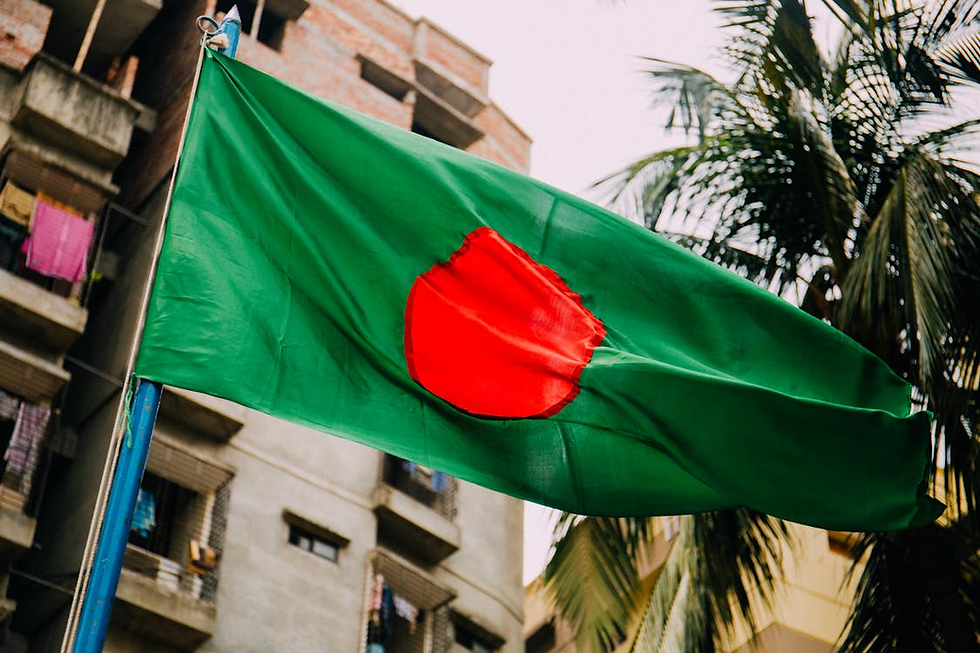Amnesty International Halts Work in India
- Arshiya Khanna
- Oct 11, 2020
- 3 min read
Updated: Dec 23, 2024
Arshiya Khanna writes about the ceasing of Amnesty International's operations in India. The sudden move comes after the government totally froze the charity's bank accounts, alleging mishandling of funds. Amnesty ardently deny these accusations, and believe they have been unfairly targeted. This is not the first time the international watchdog has had its operations shut down, and some critics believe the timing is uncoincidental.
Amnesty International, the watchdog for human rights all over the world is a non-governmental organization based in the United Kingdom. It calls for compliance to international law, primarily by stimulating public activism against governments that abuse human rights.
An Amnesty International office was first set up in the Indian state of Bihar in 1996, and since then, has actively and effectively intervened in abusive laws, women rights, corporate accountability and other human rights violations. On September 10 2020, the Indian government completely froze Amnesty’s bank accounts. This forced the organization to halt operations on September 30, citing lack of available funds. Consequently, the staff have been “laid off” while research work and campaign has also been paused.
Similar measures were imposed on AI in October 2018, as it was reported that the Enforcement Directorate subjected Amnesty’s Indian headquarters to a 10-hour raid. The ED allegedly “ordered employees to not leave, shut their laptops and searched their desks. [And] employees were not allowed to use their phones to call friends and families.”
The Indian government has reasoned that the group had broken the law by circumventing rules around foreign donations and resorting to “mala fide rerouting of money”. It has also previously accused Amnesty of flouting foreign funding laws.
As per a statement issued by the Home Ministry of India, "India, by settled law, does not allow interference in domestic political debates by entities funded by foreign donations. This law applies equally to all and it shall apply to Amnesty International as well."
According to Amnesty’s senior director of research, advocacy and policy, this is a “blatant lie”, as Amnesty India is in perfect compliance with all domestic and international legal requirements.
This sudden move comes amidst a growing sense of unrest in the nation, with the government repeatedly using the term “anti-national” to describe citizens who oppose certain laws. Amnesty has occasionally expressed its concern over the present government’s arbitrary detentions and internet restrictions in Jammu and Kashmir. It has strongly advocated for the release of detained opposition party leaders, journalists and human rights activists.
Amnesty has also criticized the government’s growing Hindutva agenda: a potential threat to Indian Muslims which is visibly manifesting itself in the Indian political arena, arguably more than ever. Perhaps the most notable fact here remains that Amnesty’s operations were forcibly denounced weeks after it released a report exploring the Delhi Police’s complicity during India’s worst riots in decades, in February 2020.
Many are sceptical that the decision was coincidental, as some critics believe:
“Under Modi, India is increasingly intolerant with a crackdown on dissent unprecedented in scale. Leaders of Modi’s party have routinely labelled critics as “anti-nationals”, and the authorities have dealt with many rights advocates and activists with an iron fist”.
Amnesty International stated that it was the "latest (move) in the incessant witch-hunt of human rights organizations" by the Indian government over "unfounded and motivated allegations." India has now joined ranks with Russia as being only the second nation in the entire world to have halted Amnesty’s operations.

_edited.png)




Comments